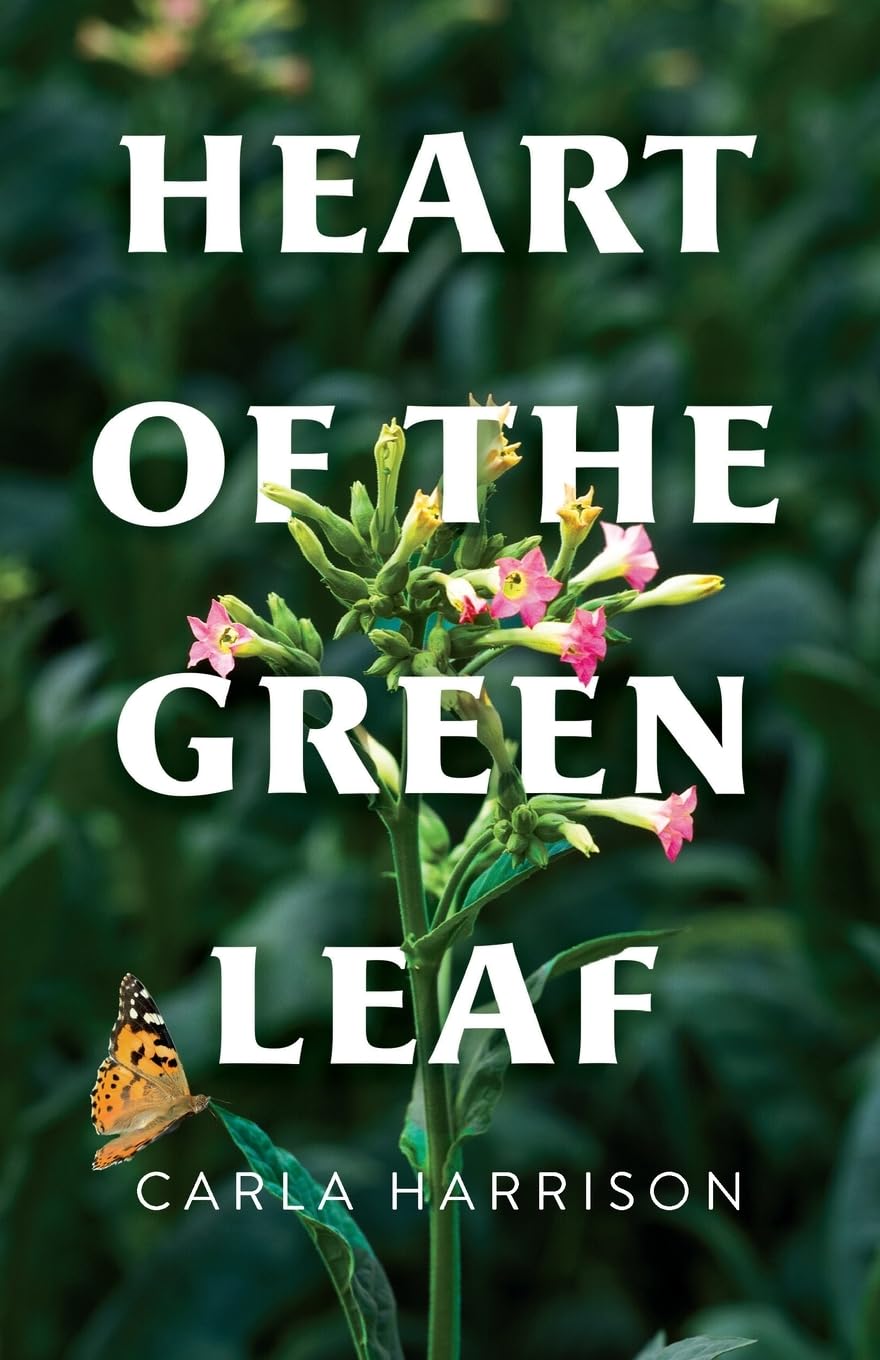Carla Harrison describes herself as a “Southern writer” and for good reason. She is a native of North Carolina, and her family has deep roots in the world of tobacco farming, which played such a big role in the history of the eastern part of the state. Carla has been living in Charlotte for twenty years, but she has never forgotten the stories that her relatives told about life on the family’s tobacco farm. When Carla decided to try her hand at writing a coming-of-age novel, she turned to these family stories for inspiration. The result is a work of historical fiction set on a North Carolina tobacco farm in the mid-1960s. Titled Heart of the Green Leaf, this novel was officially released on September 23, 2025.

I contacted Carla and asked her for more information about how she came to write Heart of the Green Leaf. Here is what she sent to me:
When both of my children left home in the same fall—one for college and the other for an arts boarding school, I suddenly found myself with an empty house and an unfamiliar stretch of quiet. After nearly two decades as a stay-at-home mom, it was an unexpected turning point. For the first time in years, I had space to ask: who was I beyond being a mother?
I’d always loved writing, mostly poetry, but it had been years since I’d nurtured that creative spirit. As I settled into a rhythm, I began writing again—this time about a girl who lived on a farm much like my grandmother’s in North Carolina. I imagined the land in earlier days, when it was full of life, in the days of a working tobacco farm, as my father often recalled. That’s when Maralee appeared…first in a poem, but she kept demanding more. Soon she had a family, and their voices carried me from poetry into prose.
As the story grew, I realized I needed community and guidance. My husband pointed me to Charlotte Lit, where I first took a few classes and then joined their Authors Lab program. Working with that community made me realize that this small story I was writing could truly grow into a novel. With their mentorship and encouragement, I was able to shape Heart of the Green Leaf into the book it is today.
Charlotte has been home to my family for over twenty years. We’ve always been drawn to the city’s vibrant arts community, from the ballet and symphony to local theaters and dance studios. Watching our children grow as young artists within this community deepened our own ties to Charlotte and gave us an even greater appreciation for the creativity that thrives here.
In many ways, writing Heart of the Green Leaf grew out of my own search for identity and belonging, and I’m honored to share it now with the very community that helped me find my voice.
Heart of the Green Leaf is a coming-of-age novel set in the summer of 1964 on a North Carolina tobacco farm. At fourteen, Maralee Truett is caught between the struggles of her family, the weight of mental health challenges, and a world on the brink of change. As she learns to trust her own voice and talents, she begins to uncover who she is and who she hopes to become. At its core, the novel is about resilience, love, and the timeless search for identity—a story I hope will resonate with anyone who has ever tried to find their place in the world.
I also wanted to share my website www.CarlaHarrison.com where readers can find more information about the book, my background, and how to order the book or get in touch with me. In addition, I’ll be participating in a virtual book launch on Sunday, October 5th, and would love for your readers to know about it.
I congratulate Carla on the publication of Heart of the Green Leaf. As Carla points out in the writeup that she sent to me, this is a story about a character who is trying to find her place in the world. In a sense, Carla has also been trying to find her place as a Southern writer, and she has succeeded. For Carla, that place is the supportive writing community that I call Storied Charlotte.















